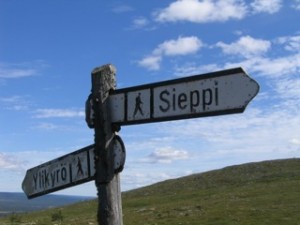 Beating the Psychology of Isolation
Beating the Psychology of Isolation
Often when people meet with me for online counselling or therapy, one of the first things they tell me is how they are ‘lost’…
I don’t know where to go
I’ve lost direction
I’ve lost touch with who I am
Popular psychology promotes concepts such as ‘independence’, ‘self-improvement’, ‘inner-strength’ and ‘self-actualisation’. As a result, many people think they must find the way forward on their own. There is a whole industry of self-help books, audio recordings and DVD’s that are marketed with this in mind.
It is a nice idea, and sometimes it works for some people. But perhaps it also has the potential to leave us feeling isolated and alone. And this may actually be contributing to the problem of being lost!
For example, when we venture into unknown territory or explore an unfamiliar place, we are probably more likely to get lost when we are on our own than when we are in the company of another person whether they be a trusted friend or experienced professional. It might be even worse if we don’t have a map or have forgotten where we were going.
Responding to Burnout with Recovering Conversations
It can be like that with life as well. When people come to meet with me in my capacity as a therapist, they have usually tried many ways of reorienting themselves or getting back to the person they were before. They are often at rock bottom or feeling burnt out and talk about coming to see me as a last resort. For certain people, this takes form as a Mid-Life Crisis, but of course it can happen at any age… it doesn’t need to be when we are middle aged!
So how can another person play a role in helping us to find our way forward again?
My experience, both personally and professionally, is that having a conversation can open up possibilities. Talking about where we have come from can help us to recognise the familiar landmarks of our lives. These might include, for example, interests we once had, books, films or sports we were passionate about and values we hold. We might recall having a previous sense of our identity through our own eyes or those of a friend, family member or former mentor. A therapeutic conversation can help us to recover an understanding of what was, and possibly still is, important to us.
Collaborative Counselling and Finding Direction
Once we have some familiar landmarks, once we have our bearings, we can ask ourselves where we want to go or at least try to remember where we thought we were headed when we became lost. Again in collaborative counselling, this is a kind of Recovering-Conversation. Talking about directions and choices with a counsellor can be like having a sounding board for the options we are considering or an audience for acknowledging how far we have actually progressed to date.
In this way, the conversation becomes a map (especially if some of the significant points are documented for later reference), recovered values become guiding lights and the therapist becomes a co-navigator. Together we can construct meanings out of experiences and events and these meanings can act as signposts. A series of counselling appointments turns into a pathway to a better place.